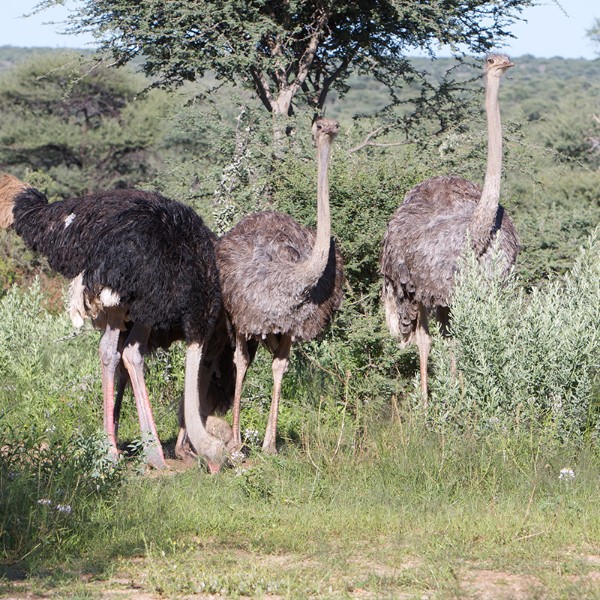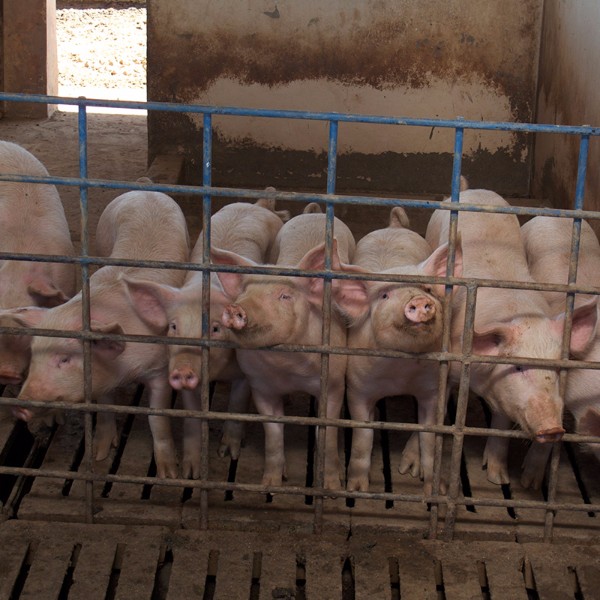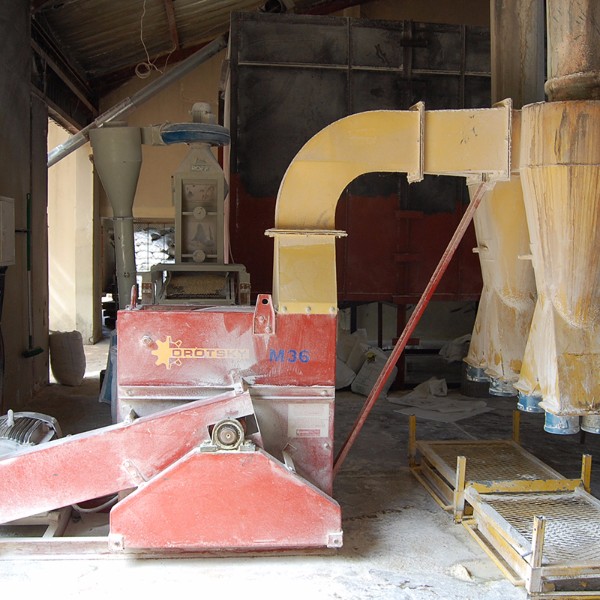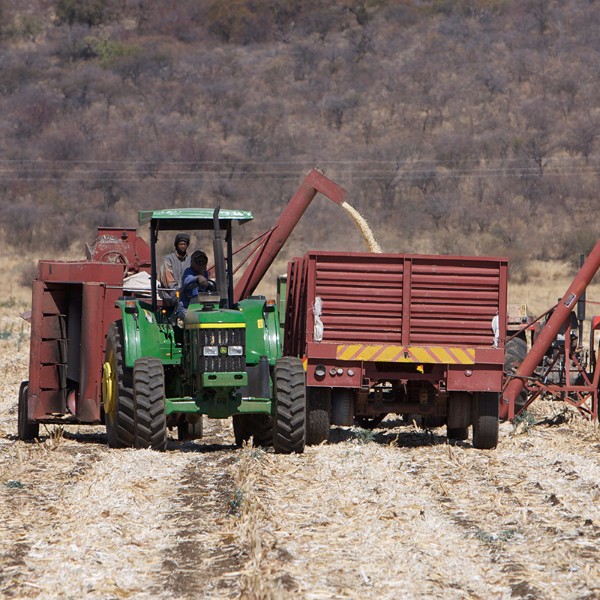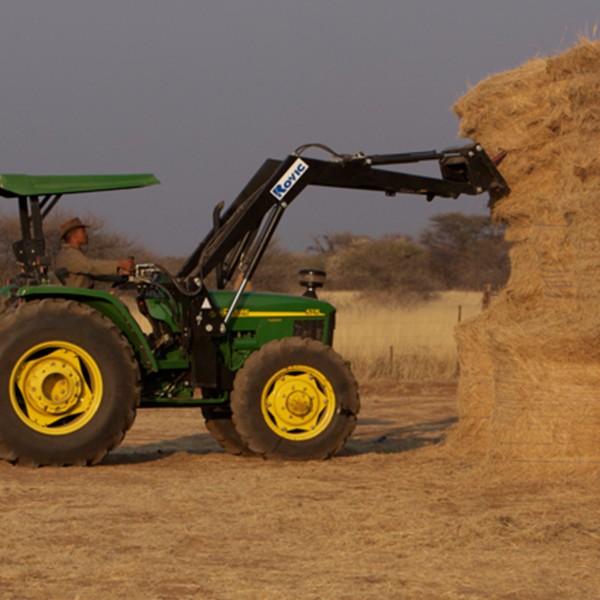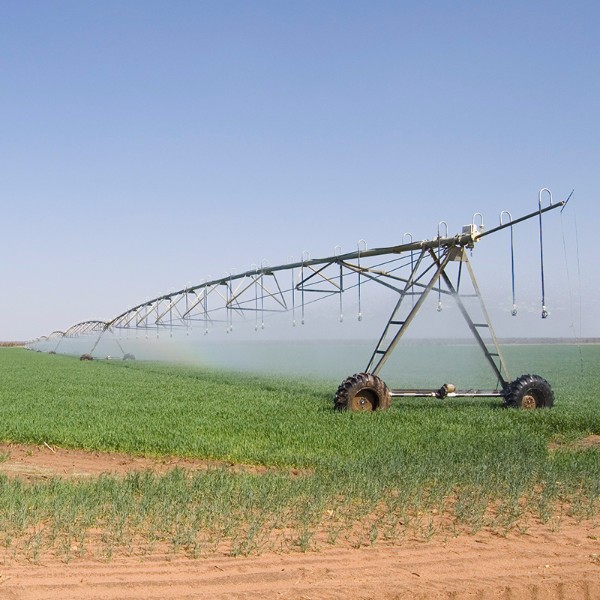
Head Office
Branches
Find a branch near you!Hours: 7:30-16:15, Central Africa Time Zone (UTC+02:00)

Quick News
Agribank to roll out its branch-on-wheels initiative
30 Jan 2024
In line with its commitment to financial inclusion and increased accessibility of its loan products, Namibia's premier agricultural lender, Agribank, is pleased to announce the introduction of its Branch-on-Wheels initiative, a project that is aimed at taking Agribank services closer to its clients, both prospective and existing, starting in February 2024.
The Branch-on-Wheels will be deployed according to the following schedule: 5-9 February, Tsumeb; 19- 23 February, Opuwo 3-5 March, Karasburg; 7-8 March Bethanie; and 17-19 March, Gochas. Operating hours will be from 08h00 – 17h30 in all areas.
According to the Bank’s Executive: Sales, Ms Hildegardt Martin, “the Branch-on-Wheels concept aspires to extend Agribank services to customers in areas with no Agribank branch, as clients in such areas find it hard to reach our physical branches that are only found in selected towns. Therefore, the Branch-on-Wheels will go to the customer, breaking geographical barriers that hamper farmers/clients to access funding from Agribank, in order to realize their farming potential.”
Additionally, Martin further assured the public that “the Bank takes this initiative very seriously and will ensure that the entire country is covered by assigning a Branch-on-Wheels team for each of the eight branches of the Bank. By doing so, the Bank expects to reach a wider customer base in remotest towns, at the convenience of the customer.”
On his part, Agribank’s Manager: Marketing and Communication, Mr Rino Muranda, implored the clientele of the Bank to “come and engage our competent staff in the scheduled areas/towns, who will be providing the following services: accepting loan applications; general enquiries and information sharing; printing of statements; update on loan applications status; and loan approvals where possible.”
Muranda further added that “Agribank offers competitive fixed interest rates as low as 4% for some loan products (communal, laborer houses in commercial areas); it provides flexible repayment options often based on the cashflow of the agri -enterprise; while also offering extended loan repayment periods resulting in affordable instalments.”
Agribank serves all farmers, including commercial, communal, emerging, and resettled farmers. The Bank finances the entire Agricultural value chain, offering a range of loan products such as vehicle and tractor loan, salary-backed/no collateral loan, horticulture production loan, farming infrastructure and implements loan amongst others. In recent years, Agribank introduced the women and youth scheme, a targeted intervention that offers relaxed terms and conditions in favour of women and the youth.
Lastly, Agribank hereby invites the public to contact the Bank at 061 207 4356, for any questions related to the Branch-on-Wheels initiative. Public members can also visit the Bank’s website www.agribank.com.na for more on loan products of Agribank.
Issued by:
Fillemon Nangonya
Public Relations Officer
For inquiries, kindly contact the Marketing and Communication Division Tel.: 061 2074308/10/55 Email: info@agribank.com.na
Agribank's Annual General Meeting Highlights Good Progress and Future Strategy
09 Oct 2023
Namibia's premier agricultural lender, Agribank,
convened its Annual General Meeting (AGM) in Windhoek on 27 September 2023. The
event was a platform to showcase the Bank’s accomplishments and present
strategic plans that will shape the future of the institution. The AGM was
graced by the presence of Honourable Iipumbu Shiimi, the Minister of Finance
and Public Enterprises.
During the financial year ending on 31 March 2023, Agribank
significantly boosted its loan disbursements, reaching over N$284 million
compared to the previous year's N$194 million. Notably, 564 clients benefited
from these loans, up from 440 the prior year.
Land purchases continued to dominate the loan allocations,
amounting to N$98.2 million and covering 134,122 hectares in FY2023, a
considerable increase from N$55.1 million and 57,965 hectares in FY2022.
Livestock purchases also saw a rise, reaching N$76.8 million in FY2023 compared
to N$52.2 million the previous year.
Loans extended to women increased to N$55.4 million
from N$30.1 million in 2022, while youth loans rose to over N$30.6 million in
FY2023 from N$20.5 million in the prior year. The bank supported full-time
communal farmers without collateral through its Emerging Retail Financing
Product (ERFP), providing over N$25.2 million, up from N$12.6 million in the
prior fiscal year. Additionally, the no-collateral scheme backed by salaries
aided employees engaging in part-time farming, with N$13.5 million disbursed in
FY2023 compared to N$10.1 million during the FY2022.
Agribank's Chairperson, Josephat Mwatotele,
acknowledged the bank's commendable financial performance, highlighting a
surplus of N$49.5 million. “I am encouraged by the sales and collection efforts
that are on an upward trajectory, despite operating in a very difficult
environment”, Mwatotele stated. He emphasized the challenges posed by weather
patterns with frequent droughts as well as global events that are continuously
increasing input costs and thereby squeezing disposal income of farmers. The
focus moving forward includes stakeholder engagement, operational efficiencies
and enhanced complaints management system to improve customer service, underpinned
by best governance practices.
Honorable Shiimi applauded the Agribank Board and
Management for “playing an active role in the transformation of agriculture, by
contributing to efforts to remove barriers across the agriculture value
chains”. Shiimi further urged the Bank’s leadership to use such platforms to
create opportunities for farmers and encourage them to adopt climate resilient
practices. The minister also indicated that his ministry is working on new
approaches for governance of public enterprises, which include the coordinated
Board development program for state owned enterprises, lifting of key
performance indicators from strategic business plans, leadership development
within SOEs as well as formalizing performance culture as some of the key
requirements for reporting at AGMs and public enterprise governance going
forward.
At the occasion, Agribank Chief Executive Officer Dr
Raphael Karuaihe, who presented the Bank’s operational highlights, noted that
prudent expenses management, enhanced momentum on sales growth and the sales
automation initiatives were key focus areas for the review period. Dr Karuaihe also
stated that going forward, the Bank will focus on strengthening engagements
with the shareholder, forging strategic partnerships across the agricultural
value chains, developing a sustainable funding model, enhancing collection and
arrears management, auctions prevention strategy, aligning product innovation
and inclusion as well as compliance with the public enterprises’ governance
act.
Pictured
above: Seated – Hon. Iipumbu Shiimi, Minister of Finance & Public
Enterprises (in the middle); Mrs Peyavali Hangula, Deputy Board Chairperson
(L); and Mrs Dolly Nashandi, Board Member (R). Standing from L-R: Mr
Josephat Mwatotele, Board Chairperson; Mr Brian Katjaerua, and Mr Alfred
Sikopo, Board Members.
AGRIBANK LOANS DISBURSEMENT INCREASE IN 1Q2023/24
18 Jul 2023
Agricultural loan disbursements by Agribank increased by 40% in
1Q2023/24 (April–June 2023) compared to the corresponding quarter of the
previous financial year. The recorded increase is mainly driven by triple-digit
growth in farmland loans as well as livestock loans.
Total loans advanced for the quarter under review stood at N$74.3
million, compared to N$46.9 million for the first quarter of 2022/23 financial
year. In addition to the farmland and livestock loans, impressive growth was
also noted under the crop sector, mainly propelled by crop production loans to
irrigation farmers, specifically in the Otjozondjupa region. This supports the Bank’s strategy of loan book diversification.
Loan distribution by gender and age categories shows that males continue
to dominate the loans advanced, accounting for 59% in the 1Q2023/24 compared to
46% in the corresponding quarter in the 2022/23 financial year. Loans advanced
to females accounted for 18% in 1Q2023/24, which is a decline when compared to
30% in the corresponding quarter in the 2022/23 financial year. Groups and
companies accounted for 23%, which include male and females. In terms of loans
advanced by age, 35% of the loans were taken up by individual farmers under the
age category of 31–40 years. This demonstrates
the Bank’s efforts to deliver on its socio-economic mandate through targeted
and special financing solutions to attract participation of women and youth in
the agriculture sector.
As the private sector credit extension picked up, Agribank observed an
increase in the agricultural extension market share of 46% in the first quarter
of 2023 compared to 45% in the prior year. The increase could be attributed to
the competitive loan terms offered by Agribank, amidst a rising interest rate
environment.
As
a national development finance institution, Agribank will continue to play a
catalyst role in addressing key national development issues such as food
security, poverty reduction, and employment creation within the agriculture
space. Agribank strives to ensure inclusive development by empowering
smallholder and large commercial farmers through access to tailored
agricultural loans, training as well as
advisory services.


